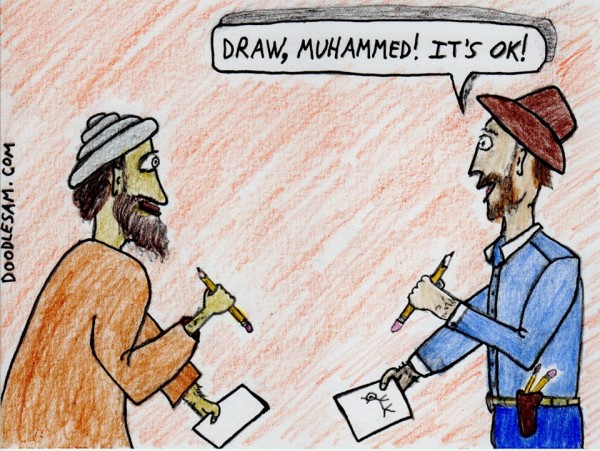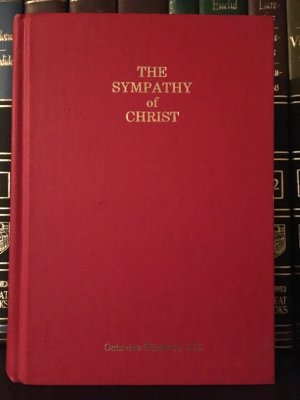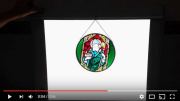
We men like to hide our emotions. Don’t we? Well, maybe “hide” sounds too accusatory. And “like” is probably an unfair characterization of our motives. We men tend to cover our emotions, or push them away, or disassociate ourselves from them to varying degrees depending on how vulnerable we feel in any given situation. We might be able to cope in this way in a large proportion of uncomfortable settings. It may even be necessary in such settings as the workplace, or the in-laws’ house, or the Sunday afternoon football get-together with the buds. But sooner or later, our emotions are caught off guard by the moment and there is no hiding them.
Hiding our emotions in relationships with persons of significance is never a good idea. With all the lumps on my own head, you would think I would have learned that lesson by now. You married fellows know what I’m talking about. If you hide emotions from your wife, you don’t usually enjoy the release of your emotions catching up with the moment. More than likely, your wife catches on a lot quicker than you admit she does and you find yourself in a heap of trouble, Uriah. (Don’t try to obfuscate your obfuscation by sly Dickens references either.)
Hiding our emotions in the workplace is not beneficial either. However, you can’t wear your emotions on your sleeve in a dog-eat-dog environment. Your emotions will be like so many juicy steaks hanging off your sleeves. You will be left in tatters and may even lose your shirt. What we need to do in the workplace is be honest with ourselves about our emotions and find the appropriate channels to express those emotions with the goal of being productive and maintaining some semblance of satisfaction in our work. It’s helpful to have someone to trustfully confide in and obtain direction from in the workplace, maybe a good and seasoned manager. Finding a mentor, even outside our place of employment, is a good idea. Get advice and channel your emotional energies in the right ways. Don’t be a sissy. But don’t be a brute either.
Now, as tough as emotional honesty in intimate relationships is, as complicated as properly handling your emotions at work is, the area of life in which allowing your true feelings to surface is the hardest and the most rare is in the realm of relationships with other men. You men, ask yourself, to how many other men are you able to say the words, “I love you,” with complete honesty and sincerity? With how many other men are you able to mutually discuss your thoughts and the workings of your soul? David, do you have a Jonathan to whom you can turn? Just as importantly, do you, Jonathan, have a David whom you love as your own soul? (I think I lost a few of you. GO READ THIS and come back.) A friendship of the type which David and Jonathan had is the holy grail of manly relationships.
I wager that most men reading this have only experienced this type of emotional honesty with another man to very low degrees. I would wager that these experiences are few and far between too. I would make this bet because such has been my life’s experience as well. I can count my Jonathans on one hand, not including my thumb.
Today, I had an experience that contained a flicker of the emotional honesty of which I am writing. I did not expect it. I was not prepared for it. Yet, by some grace, I was able to let go and stay in that honest moment. I was pulled into it by the most innocuous of lures: laughter. There is perhaps nothing as disarming as a jovial man’s laughter turning to tears due to his gratitude for your being present at one of his most vulnerable of moments. Sometimes just showing up means enough to a man that he sees you as wearing your Jonathan name tag. Given the right set of preparatory circumstances, in this case, a man’s deceased brother lying in a casket at hand, you are Jonathan. The other man shows his emotions. His laughter turns to tears while your hands are on his shoulders and he cannot take his eyes away from yours. You are thereby disarmed yourself and can do none else but shed your own tears, telling him with your eyes, “I love you.”
Then a joke is belovedly made about his brother and you both have an out. “Ha ha! He would have loved that! He had a great sense of humor!” You both are secretly thankful that humor is such a great cover for vulnerability. But you are both even more grateful to God that you saw each other’s true souls and sensed a manly love.
My fellows, this experience leaves me with the desire to be a better Jonathan. Sure, I could use a man or two to be such for me as well. While that is out of my control, my focus needs to be “do unto others as you would have them do unto you.” I pray for grace to do just that, the grace to be better prepared for the opportunities, the grace to lock eyes a moment longer, and the courage to say, “Man, I love you.”



